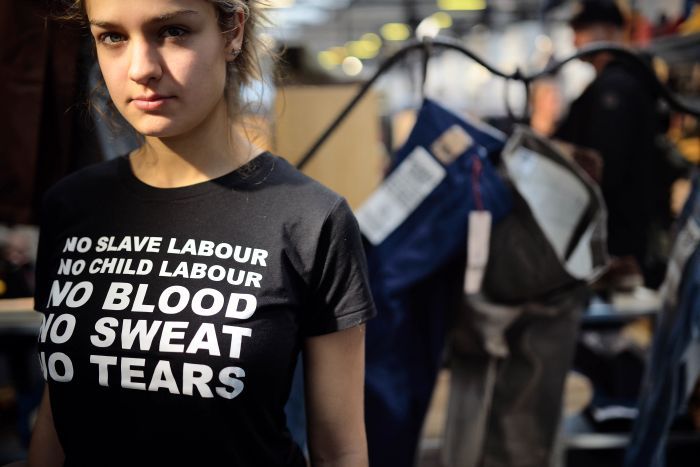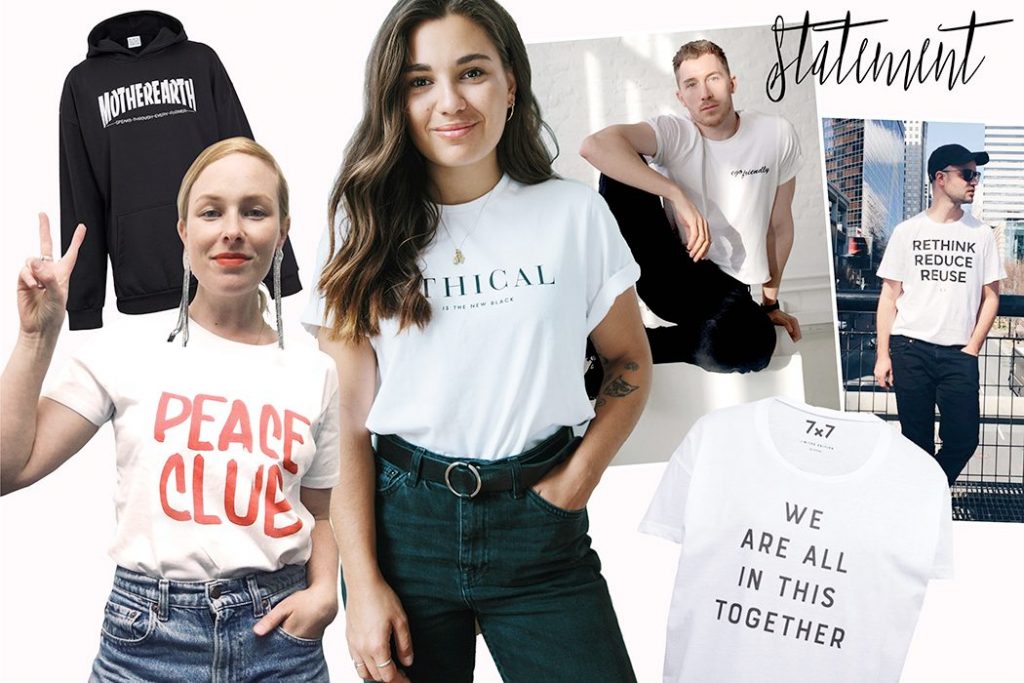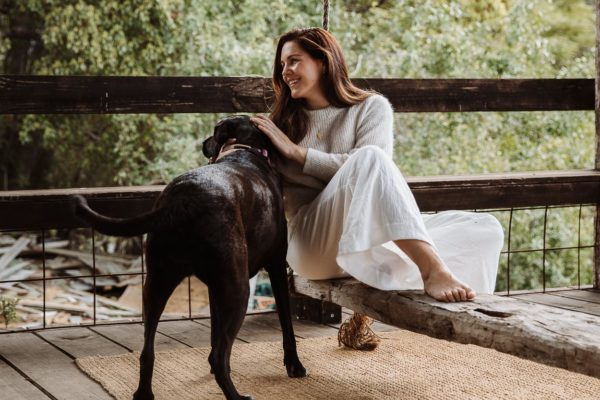Ethical fashion is on the rise, but hunting down ethical fashion companies still involves some serious sleuthing. If they’re not listed in the Good on You app, Baptist World Aid Ethical Fashion Guide, or have key terms in their brand name, it’s tough to know where a brand stands.
I’ve been in the ethical fashion game for over three years, and there’s definitely a few tricks to finding out who’s legit and who’s not.
Lower frequency of collections, alternative marketing strategies, give back schemes, transparency, and messages of longevity and apparel care, are all dead giveaways.

Image via Manrepeller
Although these indicators are not must-haves for an ethical fashion company, they’re critical pointers towards brands who tick your boxes but may not shout it from the rooftops.
Lower frequency of collections
Slow fashion is defined as buying less, consuming slowly, and investing in pieces of quality that will last forever. When a company wholeheartedly embrace ethical fashion, they’ll take slow fashion ideologies on board too.
Look out for brands who produce seasons once or twice a year, and use terminology like ‘mindful consumption’ and ‘slow fashion.’ You’ll find a great example of a New Zealand based ethical fashion company here. Annika Deboer releases two collections a year, and encourage their customers to think long and hard before they buy.

Image via Trusted Clothes
Alternative marketing strategies
You know those ‘spammy’ emails from mainstream fashion companies that often end up in your spam box or receive the ‘right click delete’ treatment? These emails suggest a brand’s primary goal is for you to buy things you don’t need. How ethical or sustainable is that?
Signing up to a newsletter will give you a sense of what the brand is all about. Watch out for daily emails full of sales pitches, and don’t be afraid to unsubscribe. If you get annoyed at the style of email they’re sending; chances are, their brand philosophy is not for you.
Give back schemes
I believe that any business, no matter what product or service they provide, should use their greater influence to give back to their local and global community. Ever heard of a little thing called Corporate Social Responsibility (CSR)? CSR schemes will be easily accessible on a company’s website, but watch out for greenwashing terms that may lead you astray. For example, if they state that they adhere to specific labour laws, or pay their employees a minimum wage, whoop-de-freaking-do. That means they’re doing the bare minimum they need to, to stay above the law. It’s not good enough.
Buy one give one scheme, or committing a percentage of profits to conservation projects, are a few examples that should catch your eye. TAMGA Designs are a great example; they give 1% of annual sales to the Sumatran Orangutan Society. No one expects this of them, or has asked them to do that: they’ve chosen to use their power as an international fashion brand, to make a positive change in the world.

Image via Peppermynta
Transparency
Emailing brands is an effective way to find out more about brands before I support them with my money.
If brands do not have a clear transparency report regarding the production of their clothes and details of their ethics, email them. Don’t be afraid to ask them the hard questions. Of course, some things may need to be kept secret (e.g. Can I please have the direct contact details to your supplier? This may not be the best question to ask first hand), but if they cannot answer simple questions like this:
- Who makes your clothes?
- Where are your clothes made?
- How do you make sure labour standards are met consistently?
- Where are your fabrics from?
… they’re probably hiding something.
Longevity and apparel care
When you spot a repair scheme or statements around durability, chances are, you’re onto a good thing.
Ethical and sustainable fashion is not just about the production of the piece of clothing: how you treat the garment throughout its lifetime matters too.
Patagonia’s ‘Worn Wear’ program is a superb example. Patagonia offer tips and tricks for cleaning and repairing garments, and encourage customers to return products when they’re worn through, or need a quick repair.
Rather than a list of must-haves, use these pointers as a guideline for finding brands who walk the talk. Before you back a brand, analyse their collection frequencies, sign up to the newsletter, investigate their give back schemes and transparency, and look out for messages around longevity and garment care.
Now that you’re a skilled, ethical fashion detective, go forth, and think before you buy.


